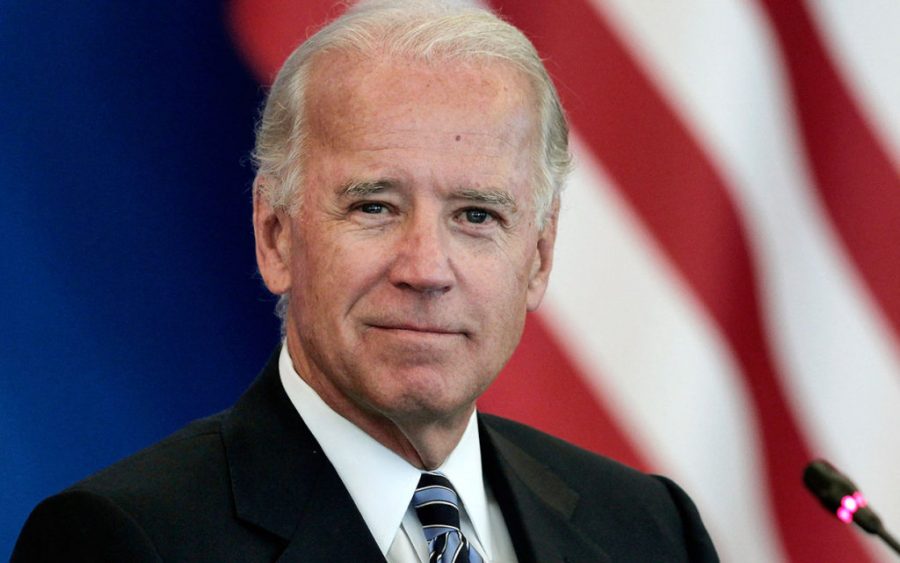Last October, Vice President Joe Biden held a press conference in the White House Rose Garden to announce whether or not he would run for president. With his wife at his right hand and President Barack Obama at his left, ‘Uncle Joe’ conceded that the window for a successful campaign “[had] passed.” With little more than a moment’s pause he moved on, explaining that instead of seeking the presidency, he planned on devoting himself to a new challenge: leading a “moonshot … to cure cancer.”
A long-stated goal of the Obama administration, the quest for a cure took on a deeply personal meaning for Biden when his son, Beau Biden, died of brain cancer in May 2015. In honor of his son’s memory, he vowed to “silence this deadly disease.”
“I know we can do this,” he concluded passionately.
His “moonshot” project soon became official. In Obama’s final State of the Union address, he echoed Biden’s sentiments, saying, “Let’s make America the country that cures cancer once and for all.” He then put his vice president “in charge of mission control.” It was in this role that Biden visited the Huntsman Cancer Institute last month.
This may sound familiar, as in a 1971 State of the Union, President Richard Nixon made a remarkably similar promise. “The time has come,” he announced, “when the same kind of concentrated effort that split the atom and took man to the moon should be turned toward conquering [cancer].” He vowed to do it in time for the bicentennial, only five years later. Needless to say, that deadline came and passed, and 45 years later, cancer continues to cause tragedy around the globe.
Since Nixon started what quickly became known as the War on Cancer, an incomprehensible amount of money — over $100 billion by the National Cancer Institute alone — has been spent in search of a cure. Despite the unrelenting efforts of the country’s best and brightest, the death rate for cancer, adjusted to account for population size and age, fell a meager five percent between 1950 and 2005. In the same time frame, the death rate for heart disease and for flu and pneumonia fell by 64 percent and 58 percent, respectively. Today, American women face a one in three chance of getting cancer in their lifetime. The odds are even bleaker for American men — one in two.
How, then, is Biden going to do the seemingly impossible? The sobering truth is that he isn’t, and since making his emotional speech he has realized as much. Only a few weeks after the State of the Union, the White House was already walking back the objectives of the Cancer Moonshot Task Force. Rather than “curing” or “silencing” the disease, the goal would be to achieve 10 years of progress in five years. This goal is without a doubt commendable, but a far cry from landing on the moon, to use the vice president’s metaphor of choice. The White House made $1 billion available for the cause — a figure that oncologists and cancer patients alike will rightly cheer, but one that represents a drop in the bucket in the greater context of the War on Cancer.
Biden realized that finding a cure for cancer isn’t like landing on the moon at all. While the moon offered a single, visible target, cancer is an umbrella term that includes dozens of very different disease processes, many of which we still know almost nothing about. The original “moonshot” was also different in that the technology that made it possible largely already existed when the goal was set. The same cannot be said for many types of cancers.
Curing cancer, then, is more akin to NASA announcing plans to land on 100 or so different planets simultaneously, some of undetermined location and others requiring technology that has yet to be invented. Hence the revised, more realistic, objectives that have been announced since Biden’s speech in the Rose Garden.
Don’t get me wrong — I applaud and admire Biden’s zeal and passion. I can think of no nobler cause for him to apply his talents and political connections to than the advancement of cancer research. Furthermore, the War on Cancer, while it has not found a definitive cure, has contributed to some of the great scientific achievements of the last half-century and my sincere hope is that with Biden’s leadership, more success is on the horizon.
I would hate for inflated expectations to overshadow these accomplishments. I don’t want the American people to be misled by his dramatic language. Take heart that our nation’s leaders have redoubled their efforts to combat one of the deadliest scourges of our generation. But make no mistake: Cancer isn’t going anywhere any time soon.


